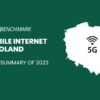Malaysia, a Southeast Asian nation with a burgeoning tech industry, has taken a decisive step towards a more complex telecommunications landscape. The government, acknowledging the public pushback against the current 5G network monopoly, has decided to introduce a second national 5G network.
The Announcement
Communications Minister Fahmi Fadzil’s announcement comes amid growing tensions in the global telecommunications industry, primarily between the US and China. The pushback against a single vendor state 5G network has been significant, with Malaysians expressing discontent over foreign interests influencing the country’s internal affairs.
International Involvement
The US and the EU have been particularly invested in this issue due to security concerns surrounding the potential reintroduction of Huawei, a Chinese multinational technology company, into Malaysia’s telecommunications infrastructure. Both entities have expressed their apprehension over Huawei’s potential as a backdoor for the Chinese government to exploit.
However, it’s worth noting that Malaysian Prime Minister Anwar Ibrahim has been vocal about his dissatisfaction with the existing state 5G network, Digital Nasional Bhd (DNB), highlighting that Huawei could have potentially implemented the same network for less than half the cost of Ericsson, the current sole vendor.
GSMA’s Lobby Against State Network
The GSMA, a global mobile industry trade association, has also raised concerns about the state network, specifically its reliance on a single vendor. The announcement of a second 5G network brings with it an expectation of diversification in vendors, thereby addressing these concerns.
The Industry Response
Two of Malaysia’s main mobile operators have publicly supported the introduction of a second state network, indicating dissatisfaction with the current setup. Furthermore, Celcom Digi, a major Malaysian telecommunications company, seems to have pivoted away from acquiring a stake in DNB to support the new network.
The Future of Malaysian 5G
The current situation, while complex, signals a shift in Malaysia’s telecommunications policy. The selection process for the vendors of this new network will be critical, with Huawei being a potential contender.
Ultimately, Malaysian users might end up with a choice between Ericsson and Huawei networks, a development that reflects the larger geopolitical tensions between the US and China. This could lead to a bifurcation in the technology world, with distinct US-approved and China-approved ecosystems.
In conclusion, Malaysia’s decision to introduce a second 5G network is emblematic of the ongoing global telecommunications struggle. It will be fascinating to observe how this situation unfolds and the long-term implications it will have on the global technology industry.
Source: Telecoms.com














Leave a Comment
Your email address will not be published. Required fields are marked with *